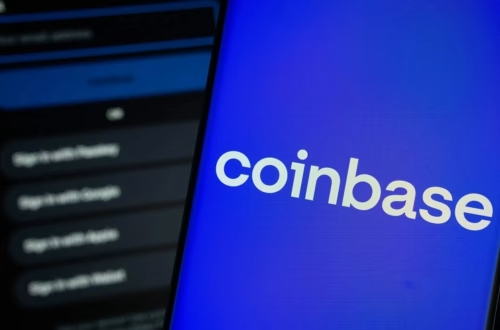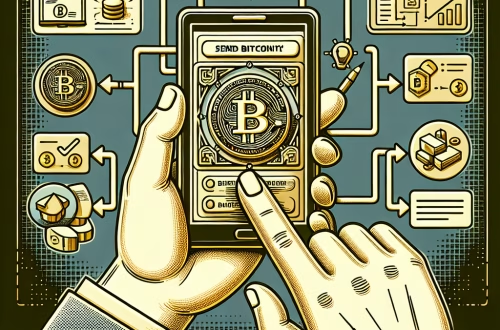best blockchain for smart contracts development
Summary:
This article explores the best blockchains for smart contract development, a critical consideration for developers, businesses, and crypto enthusiasts. Smart contracts automate agreements without intermediaries, and selecting the right blockchain can impact security, cost, and scalability. Ethereum, Solana, and Binance Smart Chain lead the space, but alternatives like Polkadot and Cardano offer unique advantages. Understanding each blockchain’s strengths and weaknesses helps choose the best platform for decentralized applications (dApps). Novices entering AI and blockchain development will gain insights into optimizing smart contract deployment efficiently.
What This Means for You:
- Lower Costs & Faster Transactions: Choosing the right blockchain can reduce gas fees significantly—Solana and BSC are cheaper than Ethereum. Deploying contracts on these chains helps save money and ensures faster processing.
- Security & Developer Community: Ethereum has the most battle-tested security and developer tools but may have higher fees. Newer developers should leverage its extensive documentation and community support before venturing into emerging chains.
- Future-Proofing Projects: Layer-2 solutions like Polygon or Arbitrum offer Ethereum’s security with scalability. Integrating smart contracts with these solutions ensures long-term viability while keeping transaction costs manageable.
- Future outlook or warning: While newer blockchains promise speed and low costs, some sacrifice decentralization or security. Developers must assess risks before committing to a chain—regulatory scrutiny and technological vulnerabilities could evolve rapidly.
Explained: best blockchain for smart contracts development
Introduction to Smart Contract Development
Smart contracts are self-executing agreements with the terms directly written into code. They enable trustless transactions, removing intermediaries like banks or lawyers. Since Ethereum introduced smart contract functionality in 2015, multiple blockchains have emerged, each with distinct strengths for decentralized applications (dApps).
Top Blockchains for Smart Contracts
Ethereum (ETH)
Strengths: Ethereum remains the gold standard for smart contracts, with the largest developer ecosystem, extensive tooling (Solidity, Hardhat, Truffle), and robust security. ERC-20 and ERC-721 token standards originated here. Layer-2 solutions (Optimism, Arbitrum) improve scalability.
Weaknesses: High gas fees during congestion and slow transaction speeds (15-30 TPS) make it less ideal for micro-transactions.
Solana (SOL)
Strengths: Solana offers blazing-fast transactions (65,000 TPS) and low fees (fractions of a cent). Its Proof-of-History consensus ensures efficiency, making it ideal for high-frequency dApps like DeFi and NFT marketplaces.
Weaknesses: Centralization concerns (limited validator nodes) and past network outages raise reliability questions.
Binance Smart Chain (BSC)
Strengths: BSC is cost-effective and Ethereum-compatible, leveraging the Binance ecosystem. Ideal for startups needing affordability and fast transactions (300+ TPS). Supports EVM, easing migration from Ethereum.
Weaknesses: Less decentralized than Ethereum, with validators controlled largely by Binance.
Polkadot (DOT)
Strengths: Polkadot’s interoperable parachains allow customized blockchains to communicate. Scalability and shared security make it unique for enterprise solutions.
Weaknesses: Complex development environment and smaller community compared to Ethereum.
Cardano (ADA)
Strengths: Cardano emphasizes peer-reviewed research and sustainability. Its Ouroboros Proof-of-Stake algorithm ensures energy efficiency.
Weaknesses: Slower development pace and fewer existing dApps limit immediate opportunities.
Choosing the Right Blockchain
Developers must consider:
- Use Case: Ethereum for security-heavy dApps, Solana for speed, BSC for cost efficiency.
- Developer Resources: Beginner-friendly chains (Ethereum, BSC) offer more tutorials.
- Long-Term Viability: Emerging chains (Avalanche, Fantom) may gain traction but carry adoption risks.
Limitations & Risks
Smart contract vulnerabilities (e.g., reentrancy attacks) require thorough auditing. Cross-chain bridges also pose security risks, as seen in high-profile exploits.
People Also Ask About:
- Which blockchain is best for beginners in smart contract development? Ethereum is ideal for beginners due to unmatched documentation, developer tools (Remix IDE, MetaMask), and community support. Solidity, its primary language, has abundant learning resources compared to newer chains.
- Are there alternatives to Ethereum for smart contracts? Yes—Binance Smart Chain, Solana, and Polkadot offer varying trade-offs between cost, speed, and decentralization. BSC is popular for Ethereum developers due to EVM compatibility.
- How secure are smart contracts on different blockchains? Ethereum’s maturity makes it the most secure, but its high fees push projects to riskier chains. Auditing tools (CertiK, OpenZeppelin) are critical regardless of platform.
- What role do Layer-2 solutions play in smart contracts? Layer-2 networks like Polygon or Arbitrum batch transactions off-chain before settling on Ethereum, reducing costs while maintaining security. They’re essential for scaling Ethereum-based dApps.
- Can smart contracts work across multiple blockchains? Cross-chain protocols (Cosmos, Polkadot) enable interoperability. However, bridging assets between chains introduces complexity and security risks, requiring cautious implementation.
Expert Opinion:
The future of smart contracts hinges on balancing scalability, security, and decentralization. While Ethereum dominates, newer chains threaten its lead but often sacrifice core blockchain principles. Developers should prioritize security audits and avoid over-reliance on unaudited third-party code. Regulatory compliance will increasingly shape smart contract adoption, especially in DeFi and enterprise applications.
Extra Information:
- Ethereum Foundation – Official resources for Ethereum smart contract development, including tutorials and whitepapers.
- Solana Documentation – Guides for building high-performance dApps on Solana using Rust or C.
- Hardhat – A developer tool for Ethereum smart contract testing and deployment, widely used in industry.
Related Key Terms:
- Best Ethereum alternatives for smart contracts 2023
- How to choose blockchain for dApp development
- Smart contract security best practices
- Top Layer-2 solutions for Ethereum scaling
- Binance Smart Chain vs Solana for DeFi
#Blockchain #Smart #Contracts #Ethereum #Solana #Cardano #Compared
Featured image generated by Dall-E 3




